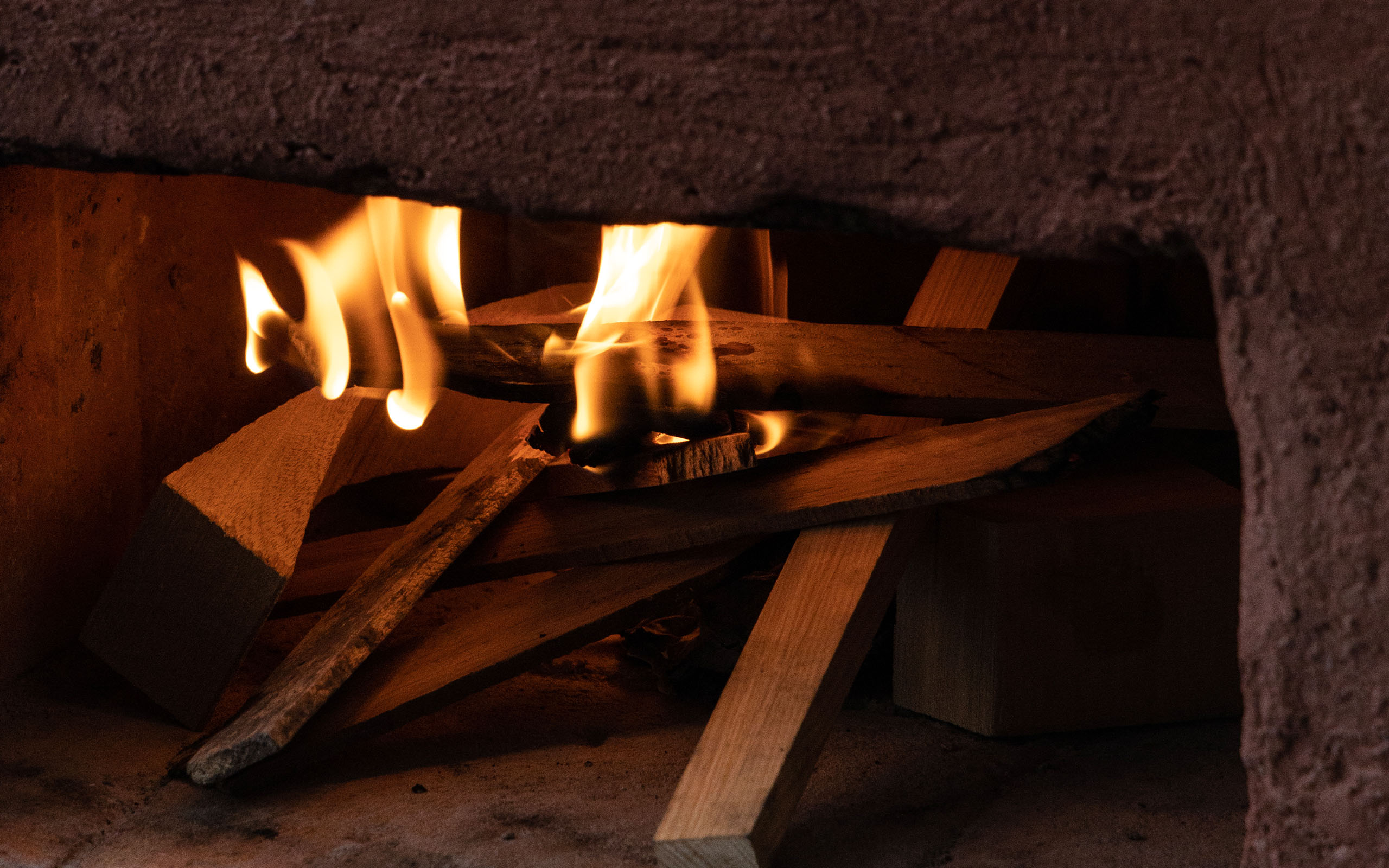
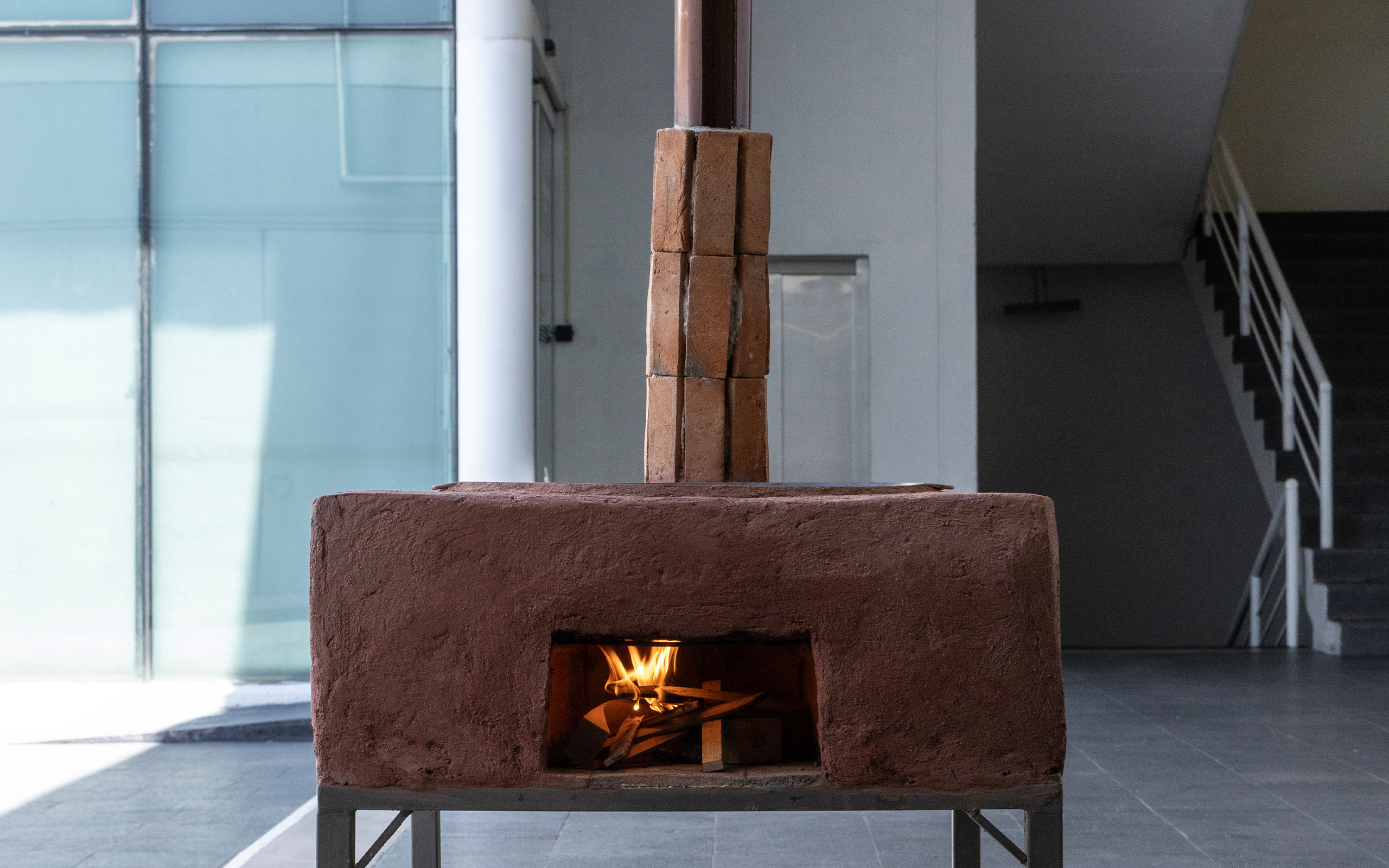
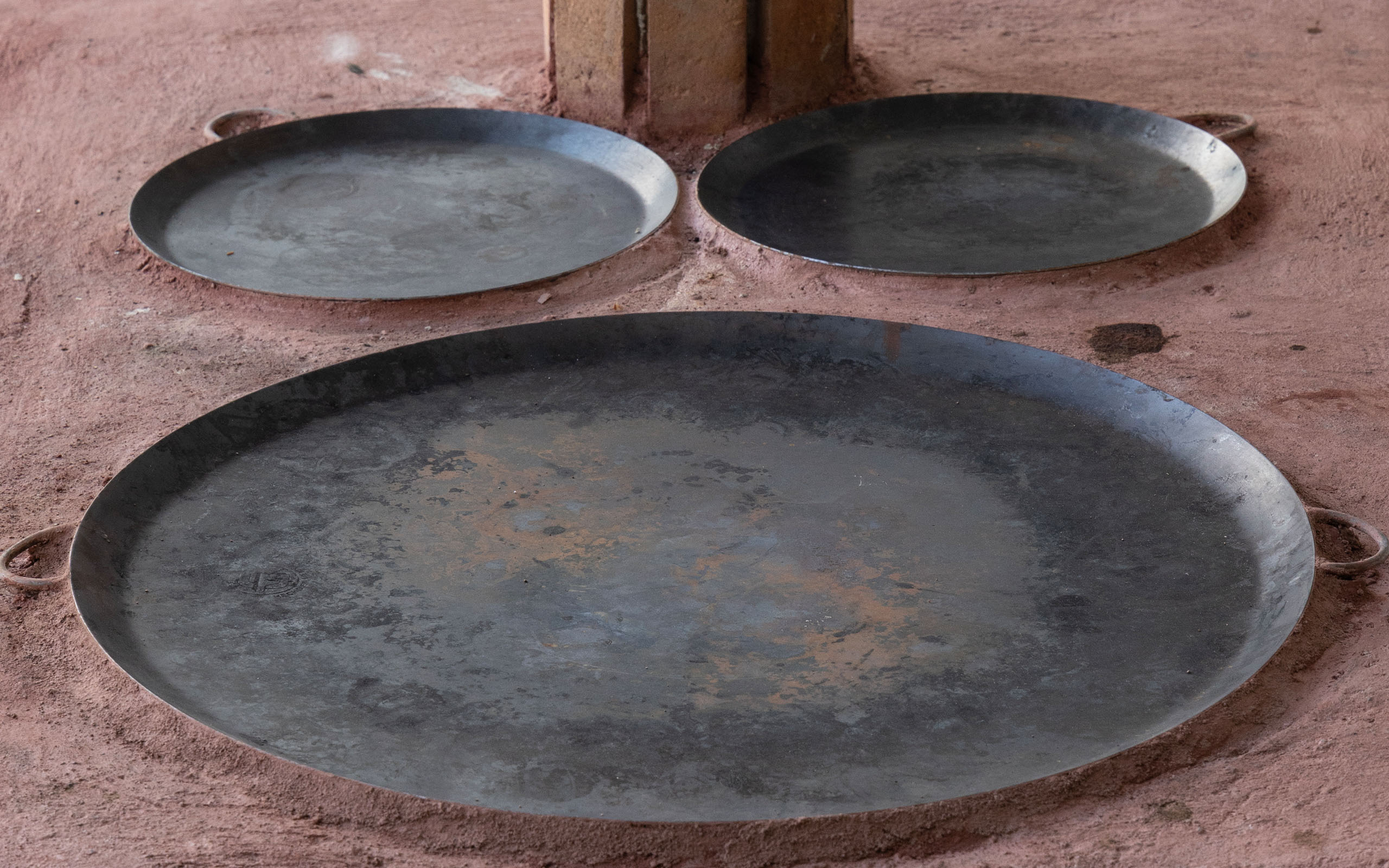
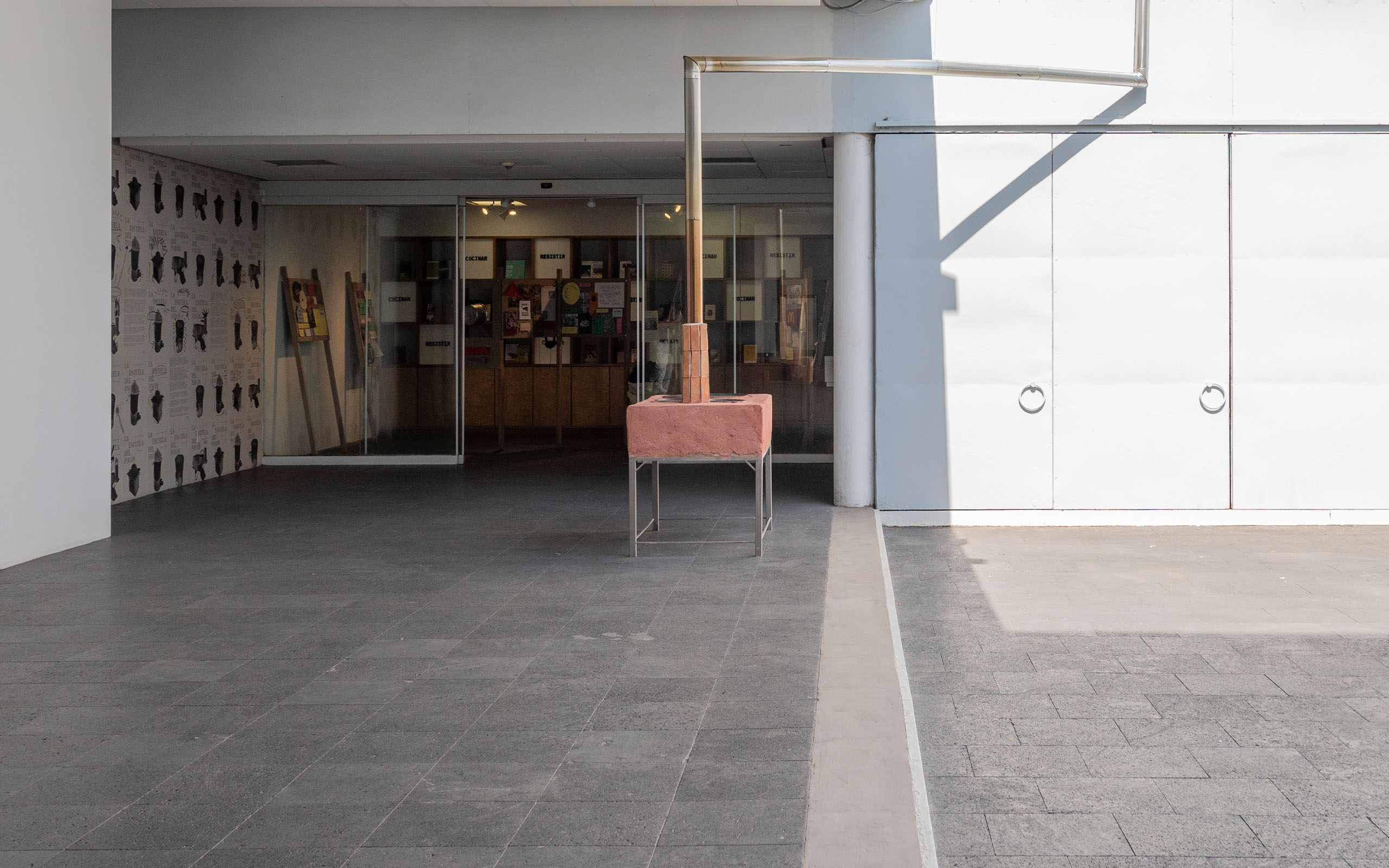
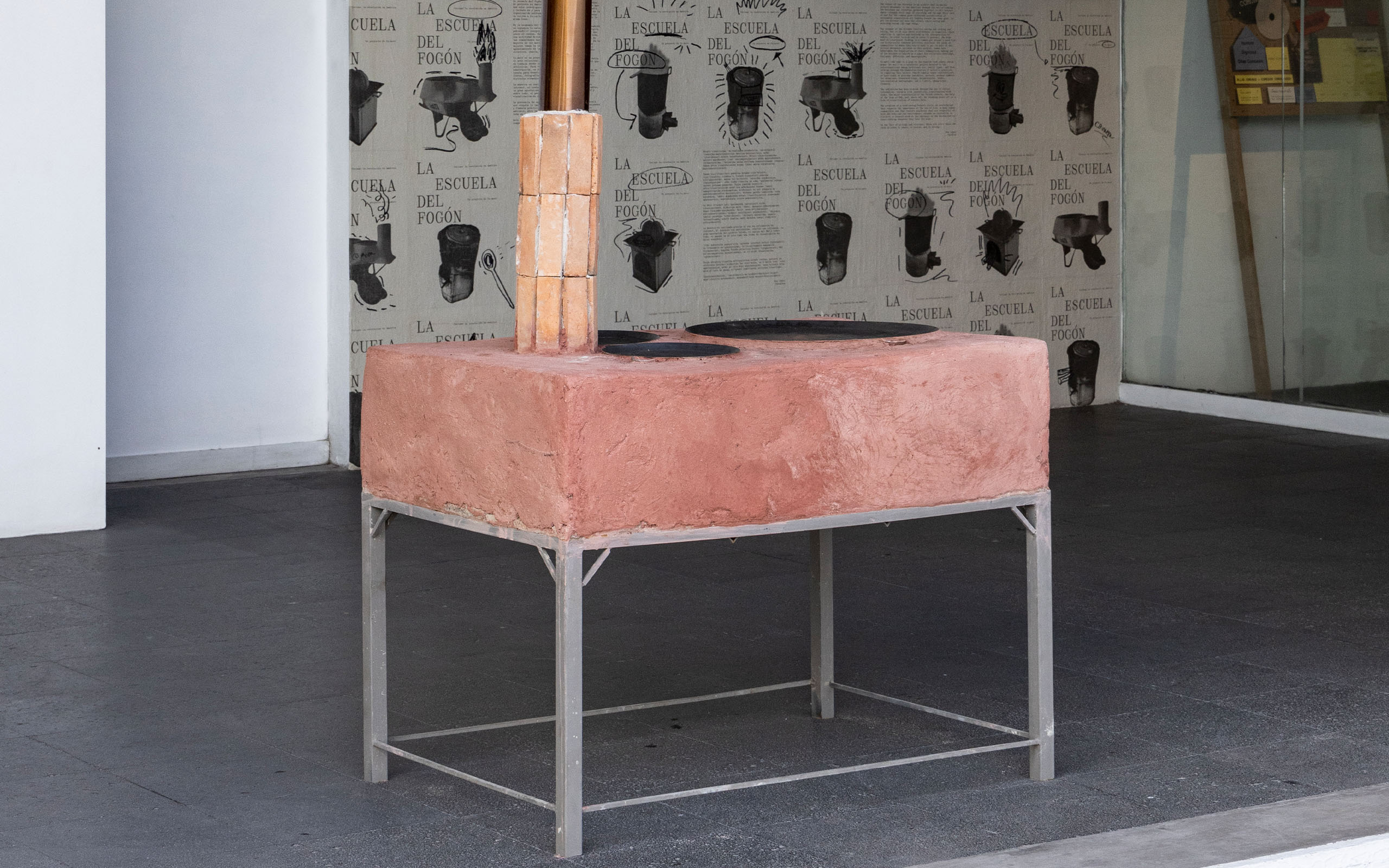
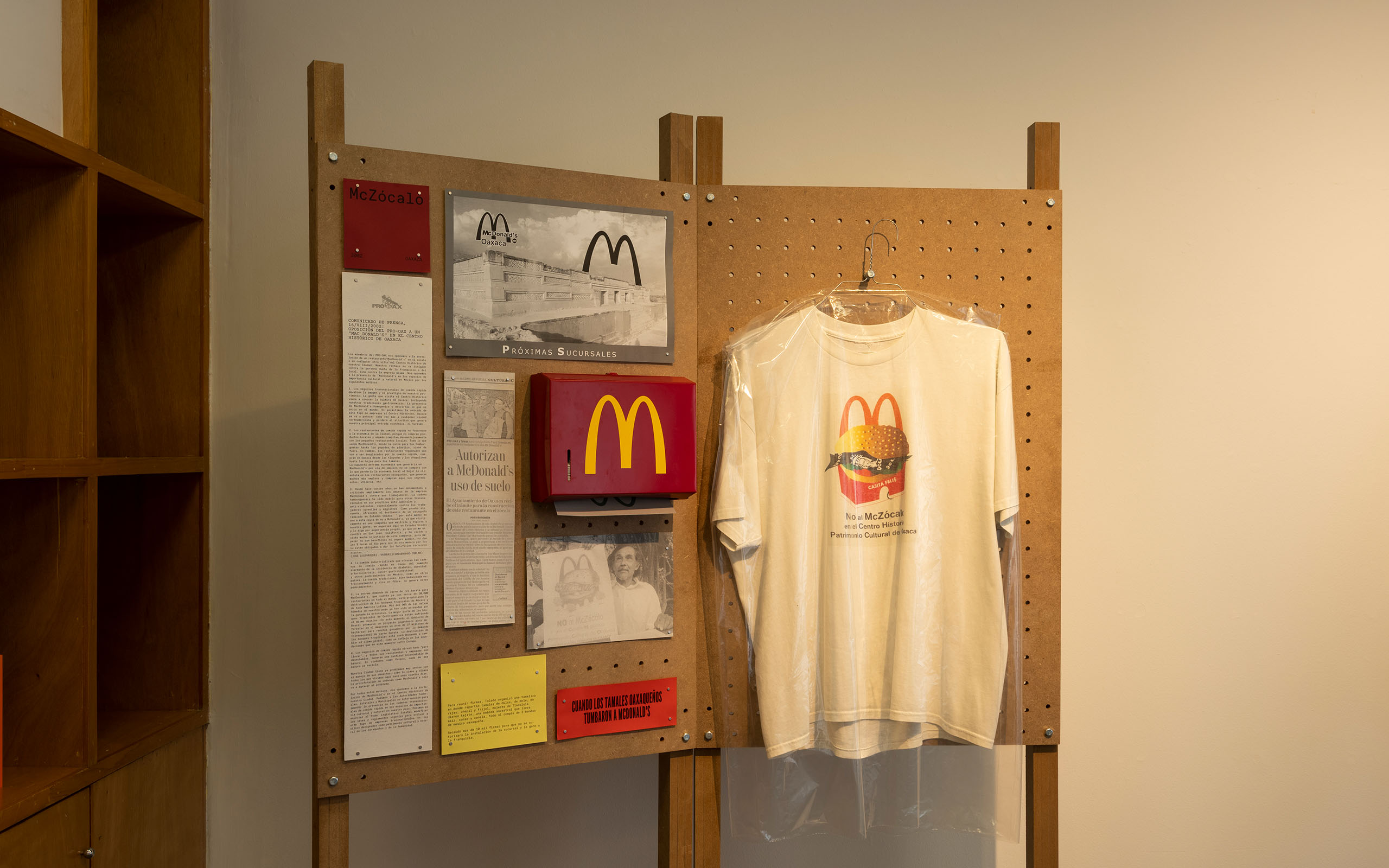
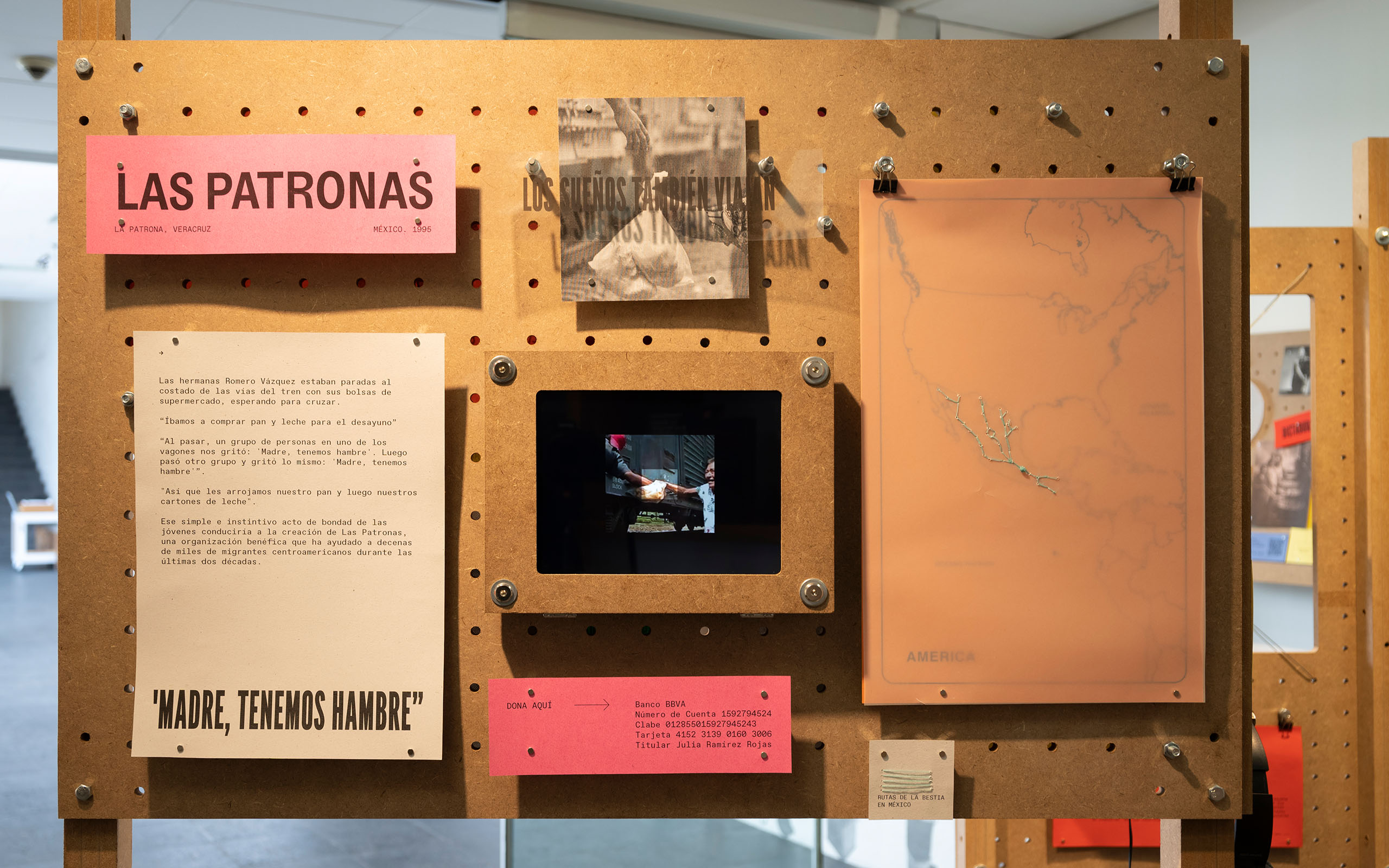
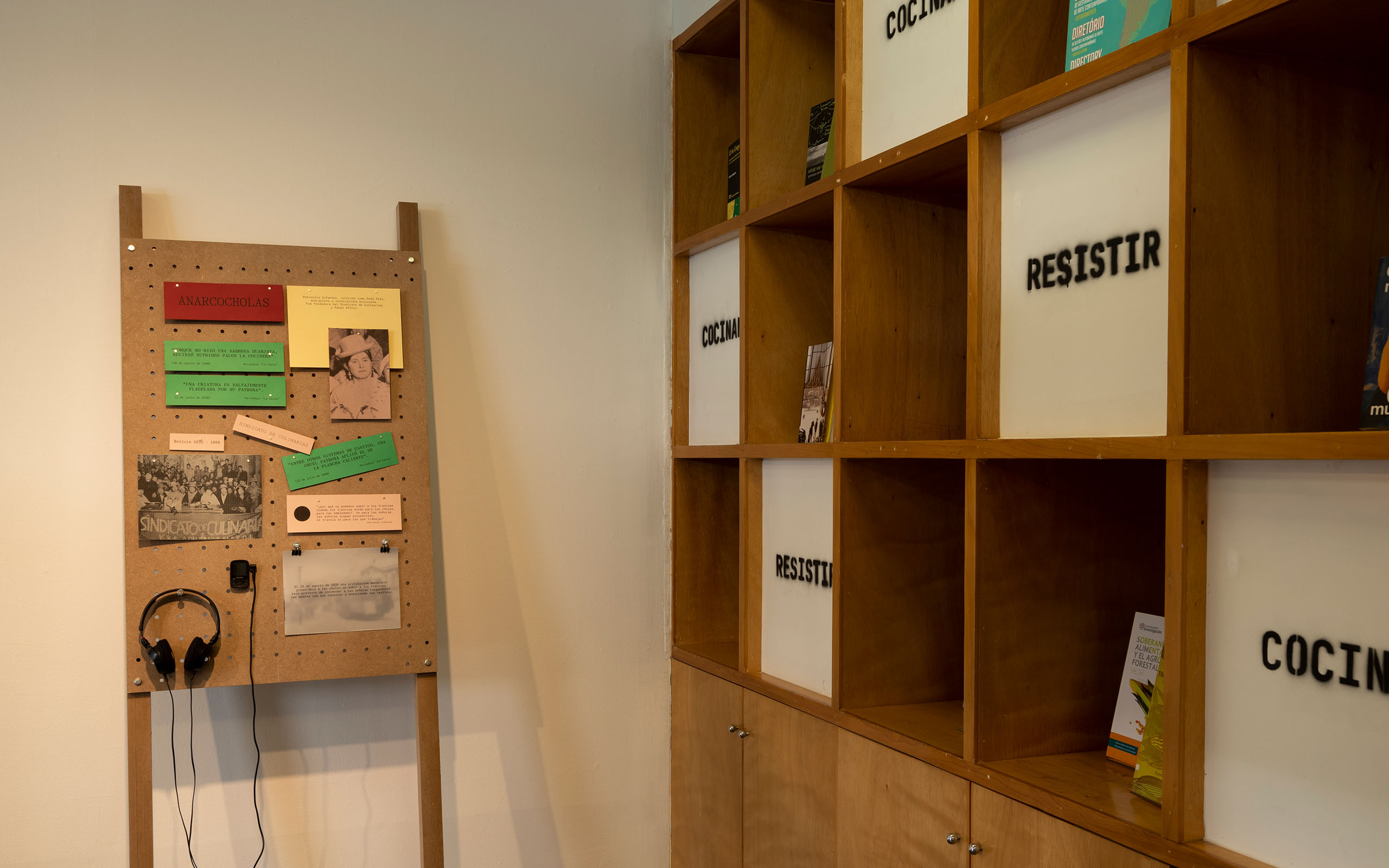
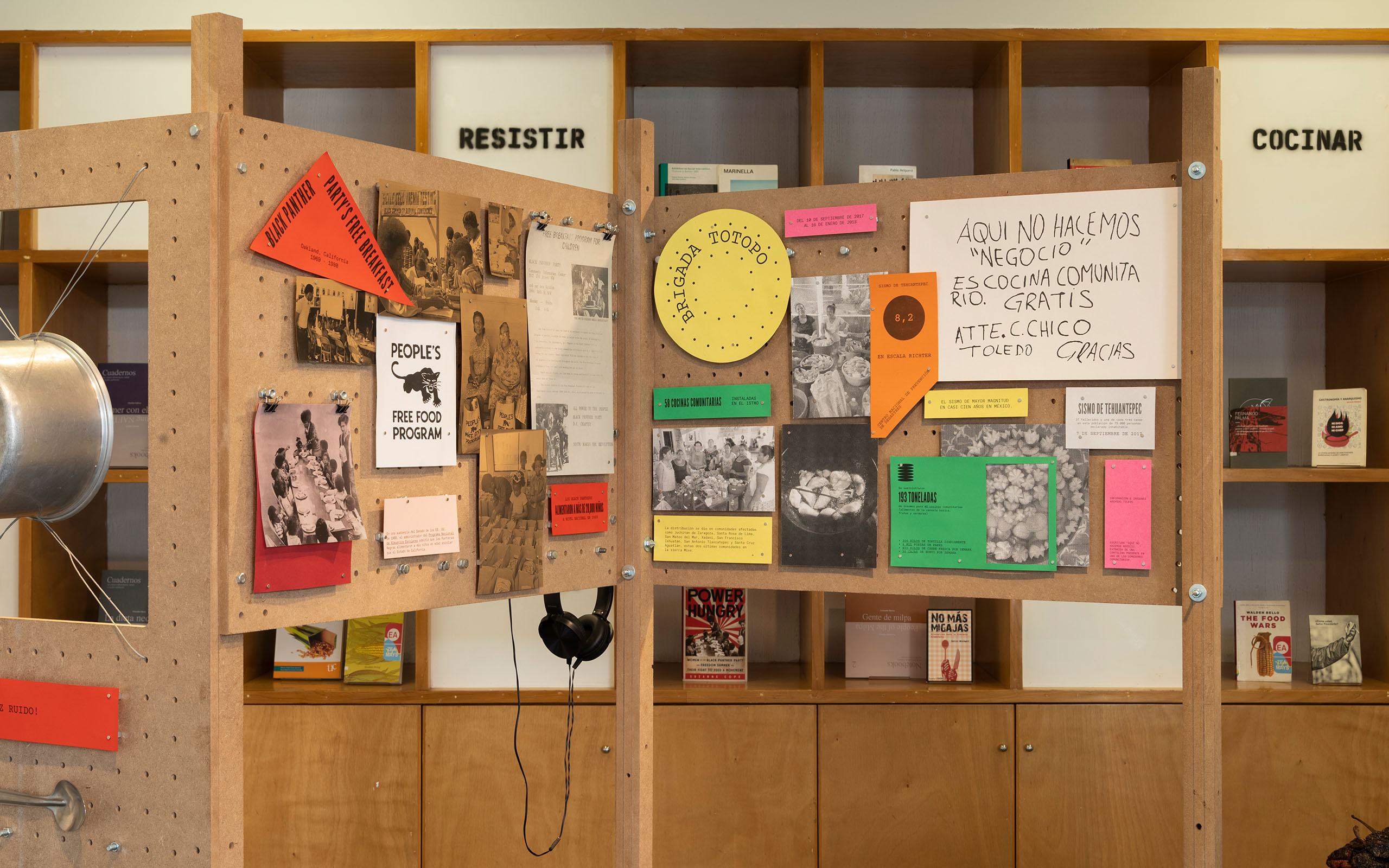
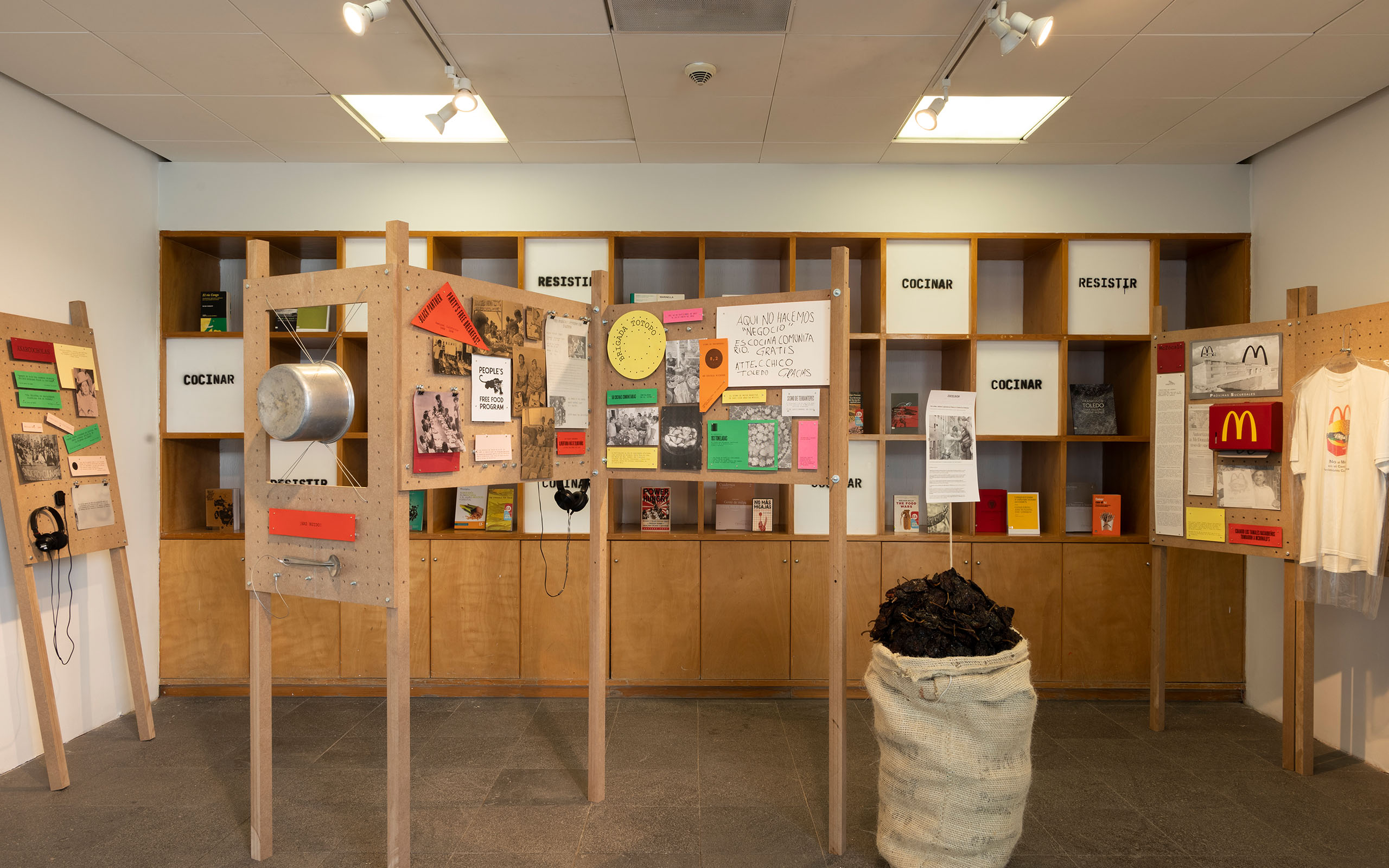
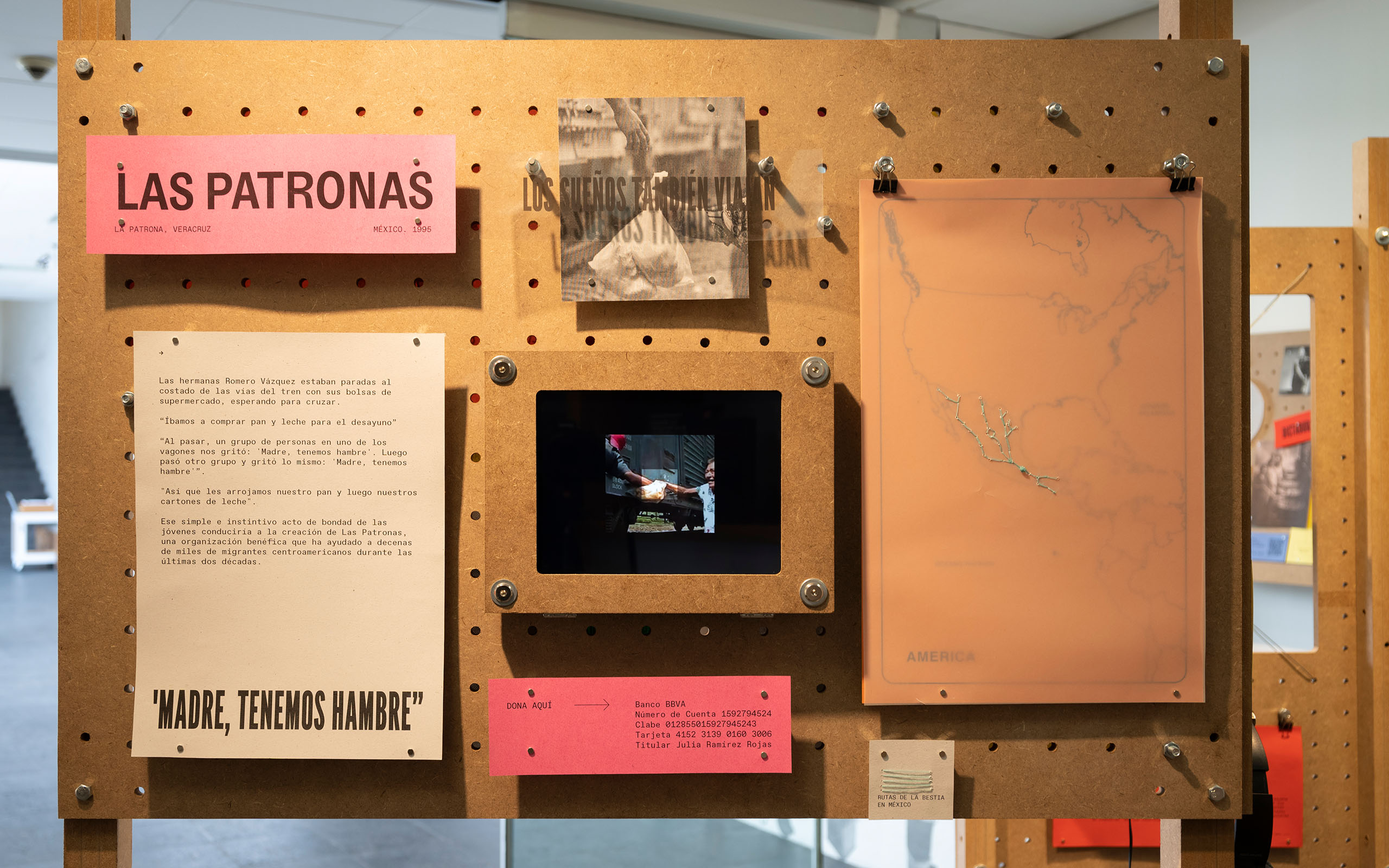
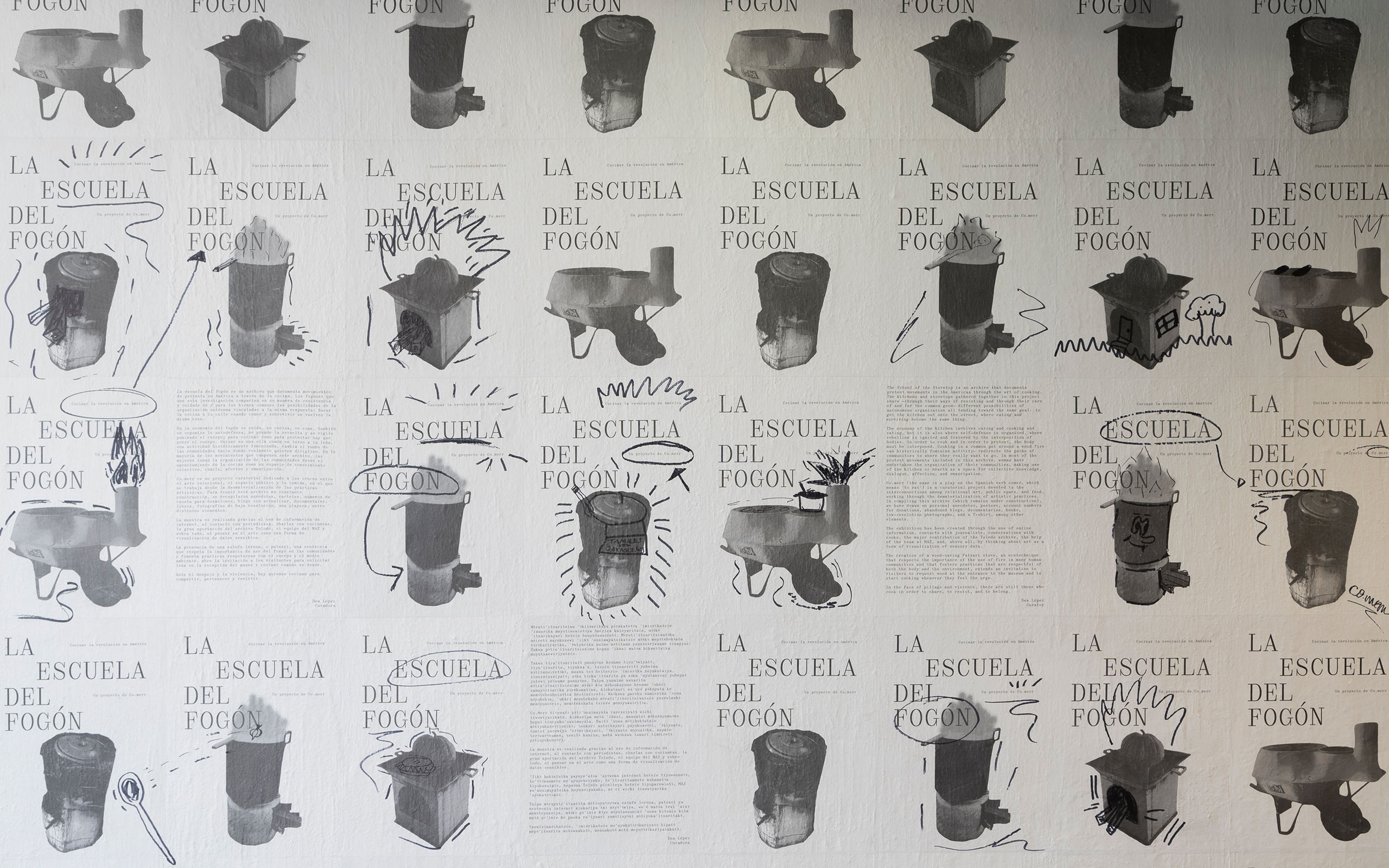
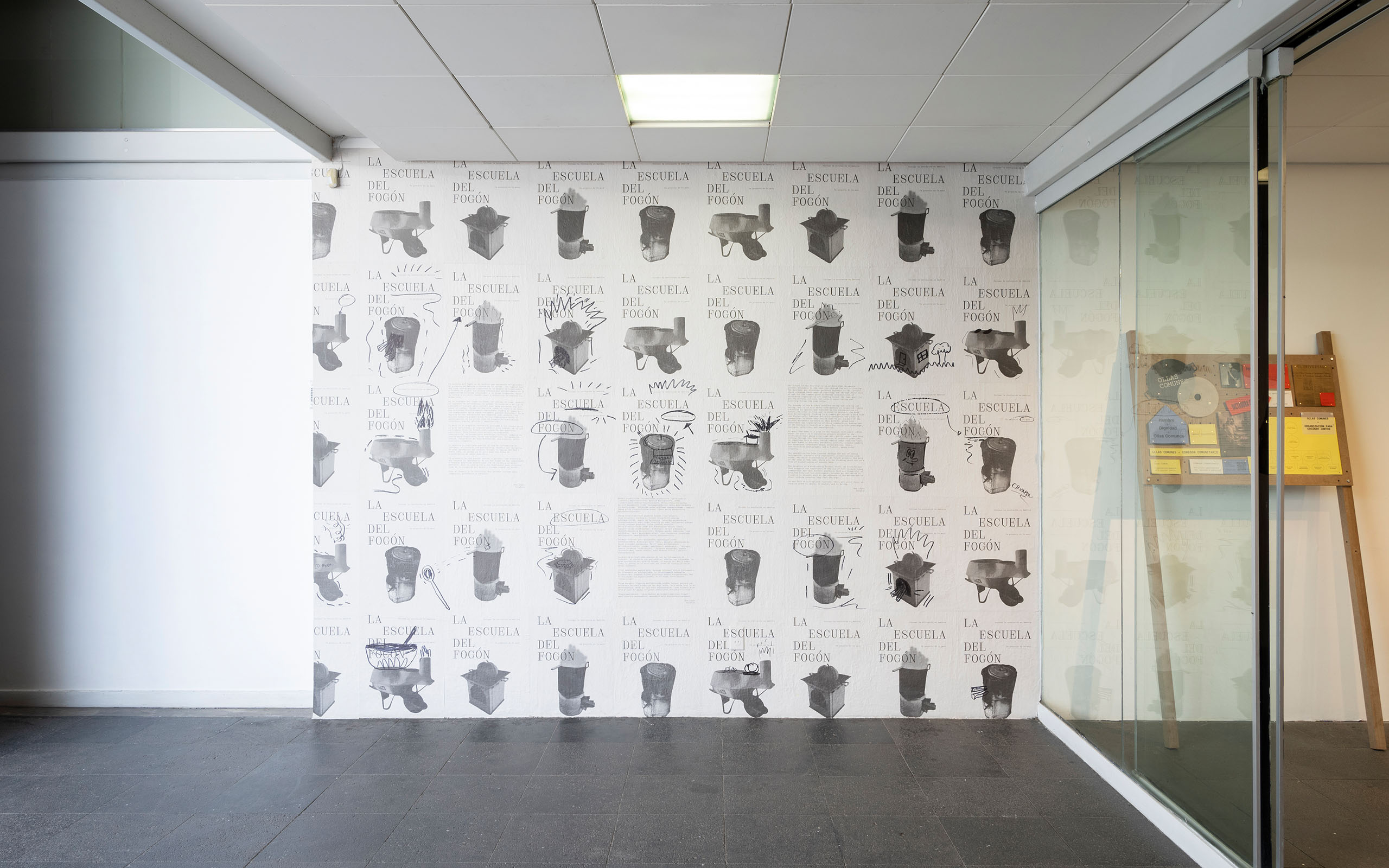
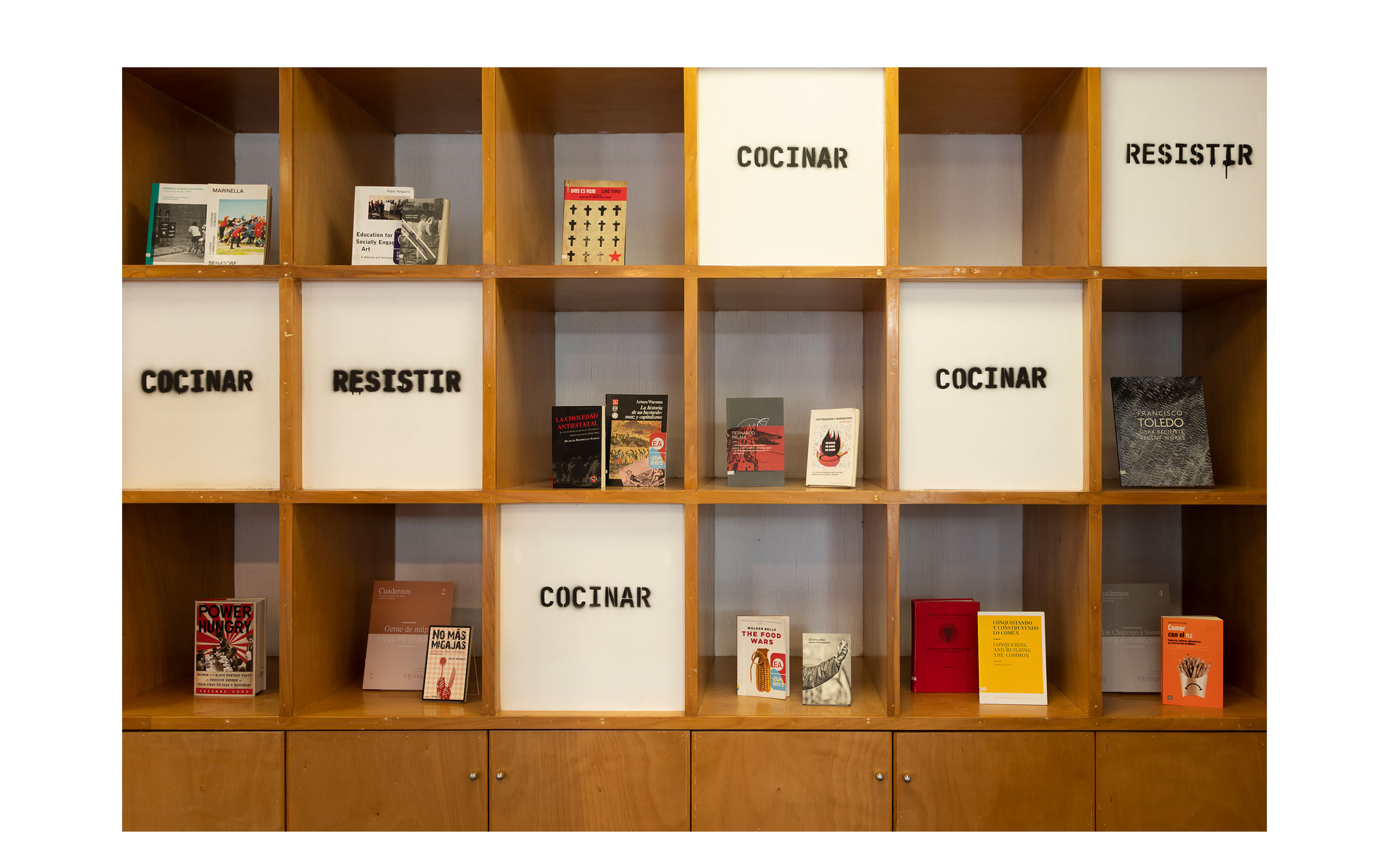
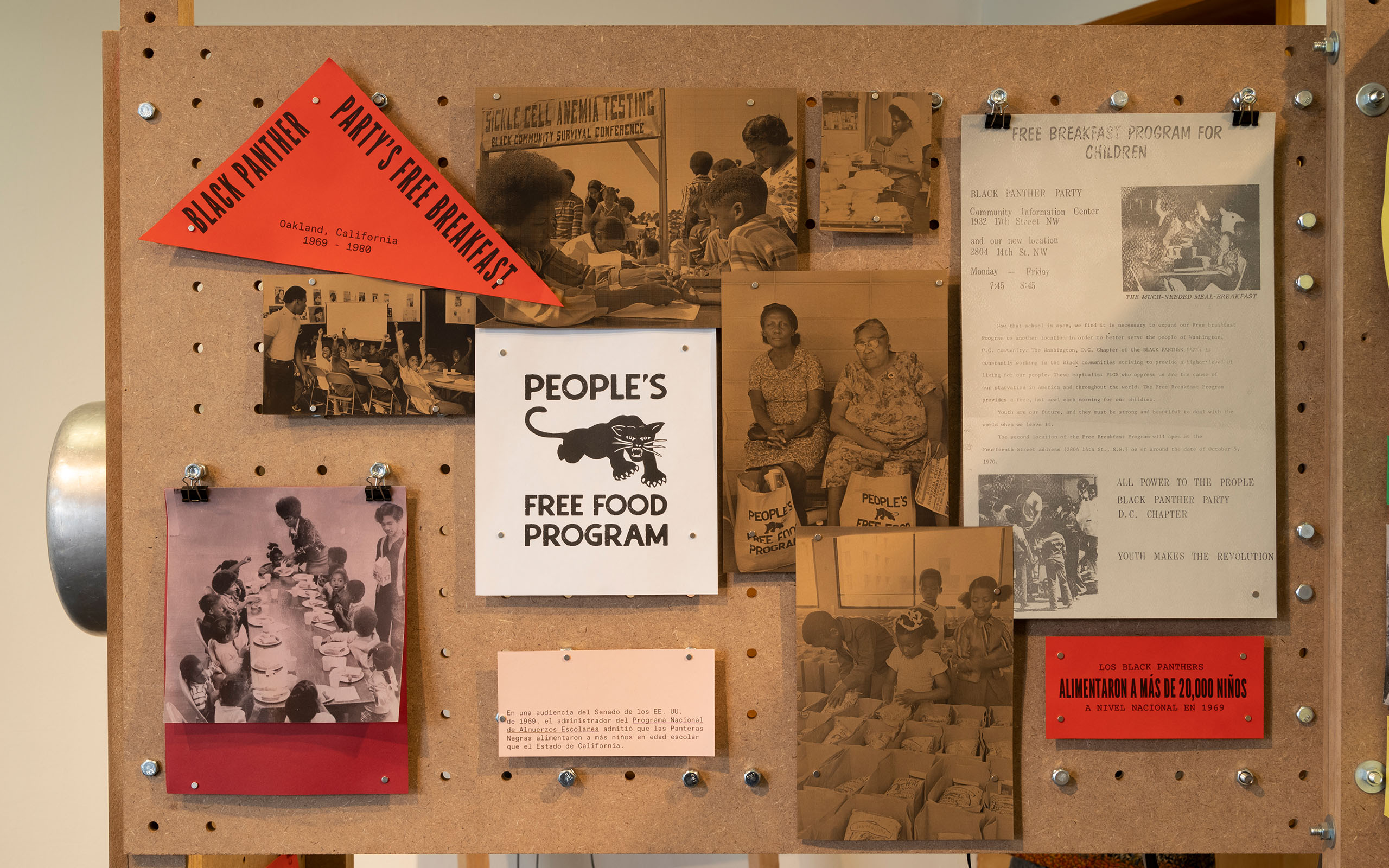
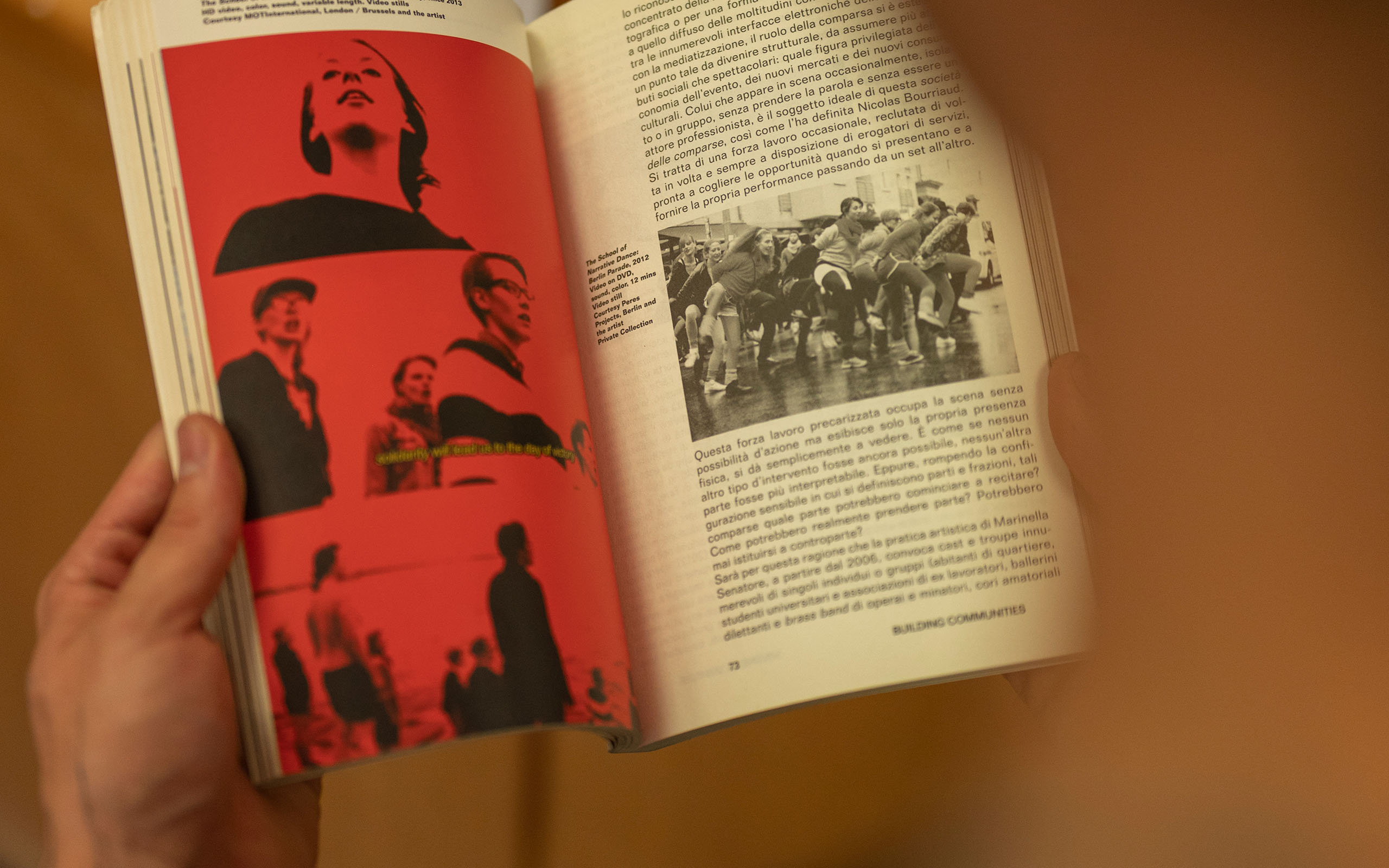
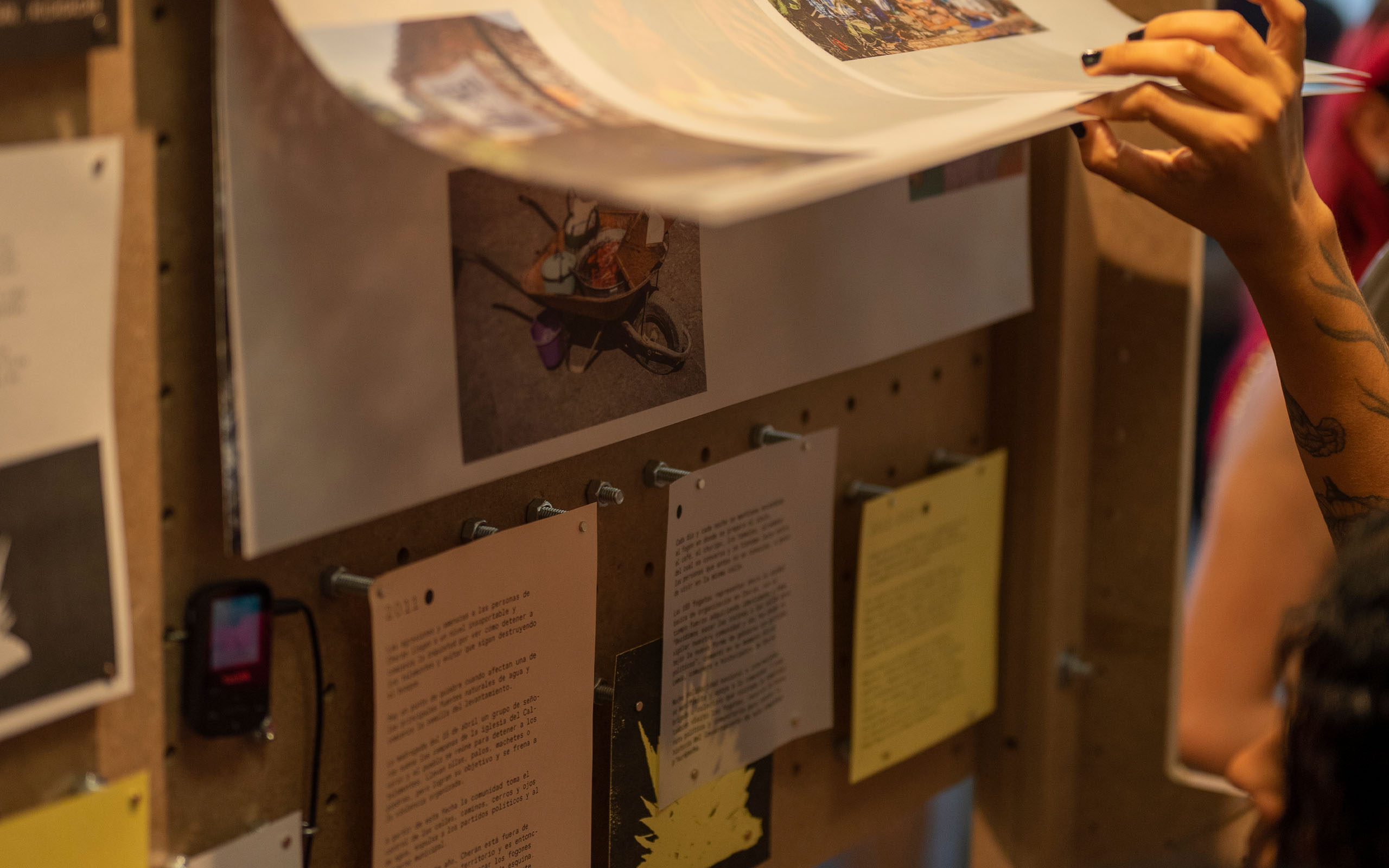
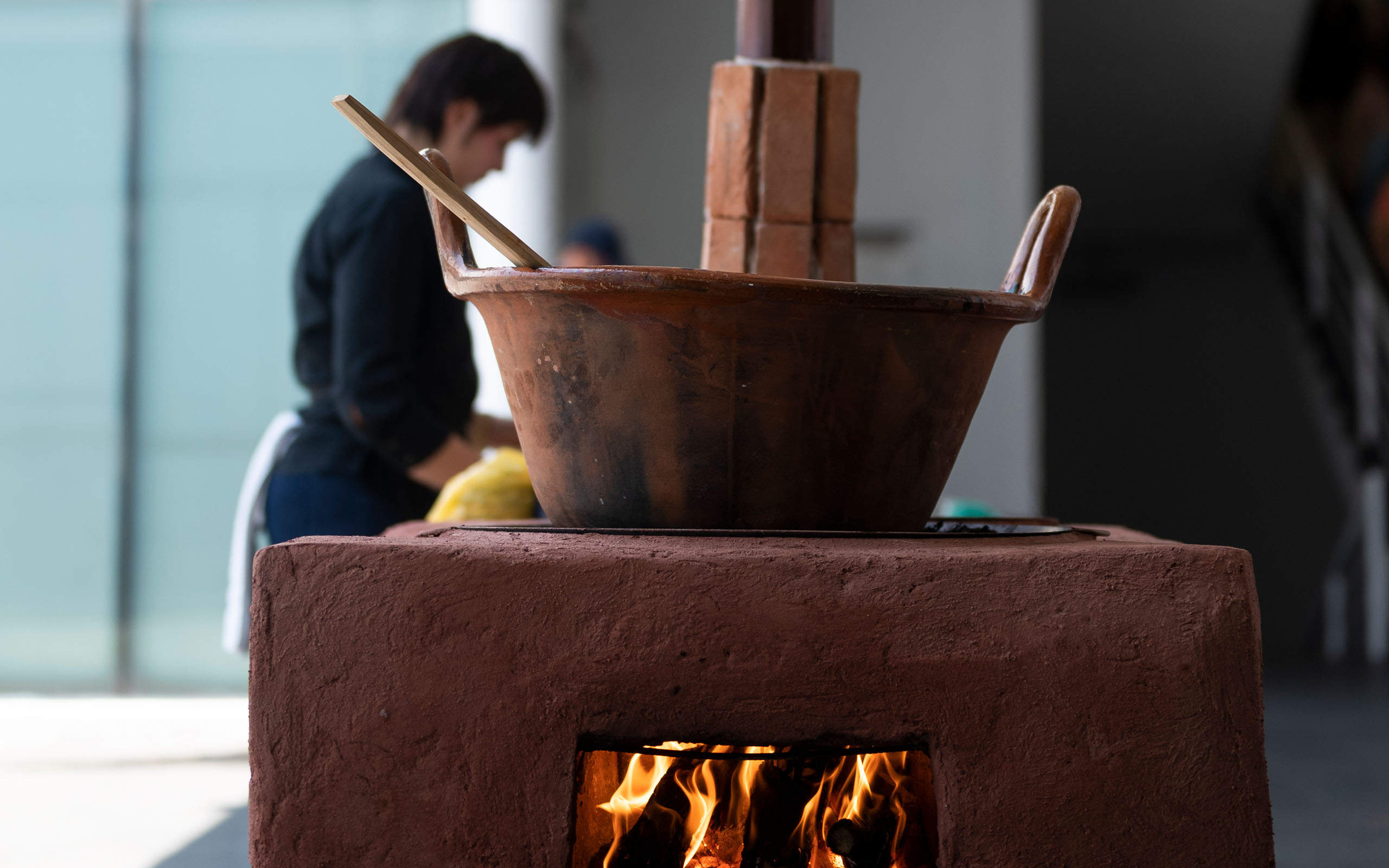
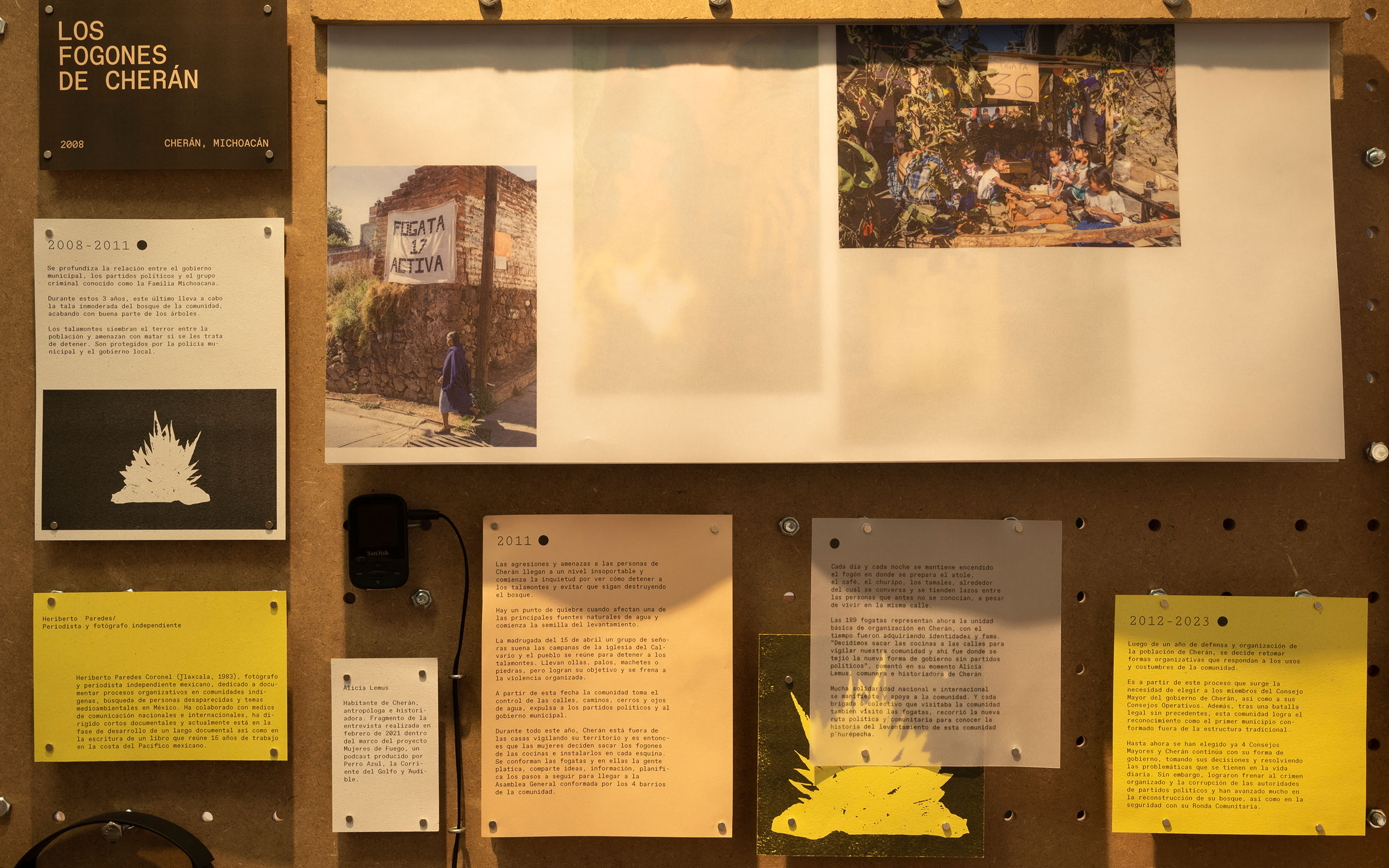
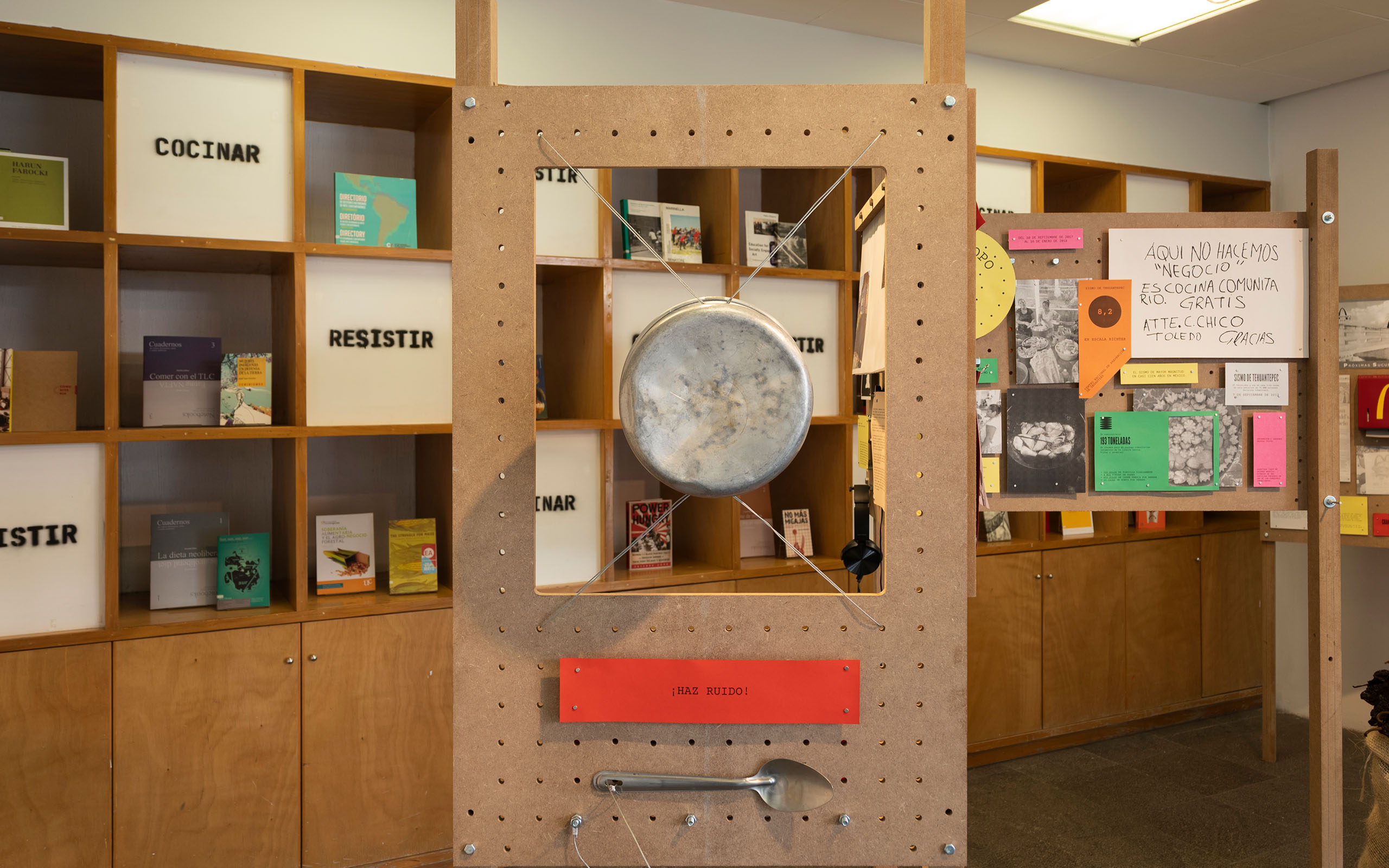
The School of the Stovetop. Cooking up Revolution in the Americas | Co.Merr
From May 27 to August 27, 2023
Biombo
A Project by Co.Merr
Reading Room
The School of the Stovetop is an archive that documents protest movements in the Americas through the art of cooking. The kitchens and stovetops gathered together in this project share —through their ways of resisting and through their care of and for the common good— different possibilities of autonomous organization all tending toward the same goal: to get the kitchen out onto the street, where eating and surviving become the same thing.
The economy of the kitchen involves caring and cooking and eating, but it is also where self-defense is organized, where rebellion is ignited and fostered by the interposition of bodies. In order to cook and in order to protest, the body must be interposed. Cooking in a common pot around a wood fire —an historically feminine activity— redirects the paths of communities to where they really want to go. In most of the protest movements included in this archive, woman have undertaken the organization of their communities, making use of the kitchen or hearth as a space for collective knowledge, dialogue, affection, and emancipation.
Co.merr (the name is a play on the Spanish verb comer, which means ‘to eat’) is a curatorial project devoted to the interconnections among relational art, public space, and food, working through the dematerialization of artistic practices. In compiling this archive (which remains under construction), we have drawn on personal anecdotes, posters, account numbers for donations, abandoned blogs, documentaries, books, low-resolution photographs, and a T-shirt, among other elements.
The exhibition has been created through the use of online information, contacts with journalists, conversations with cooks, the major contribution of the Toledo archive, the help of the team at MAZ, and, above all, by thinking about art as a form of visualization of sensory data.
The creation of a wood-saving Patsari stove, an ecotechnique that respects the importance of the use of fire in many human communities and that fosters practices that are respectful of both the body and the environment, extends an invitation to visitors to request wood at the entrance to the museum and to start cooking whenever they feel the urge.
In the face of pillage and violence, there are still those who cook in order to share, to resist, and to belong.
Dea López
Curator
